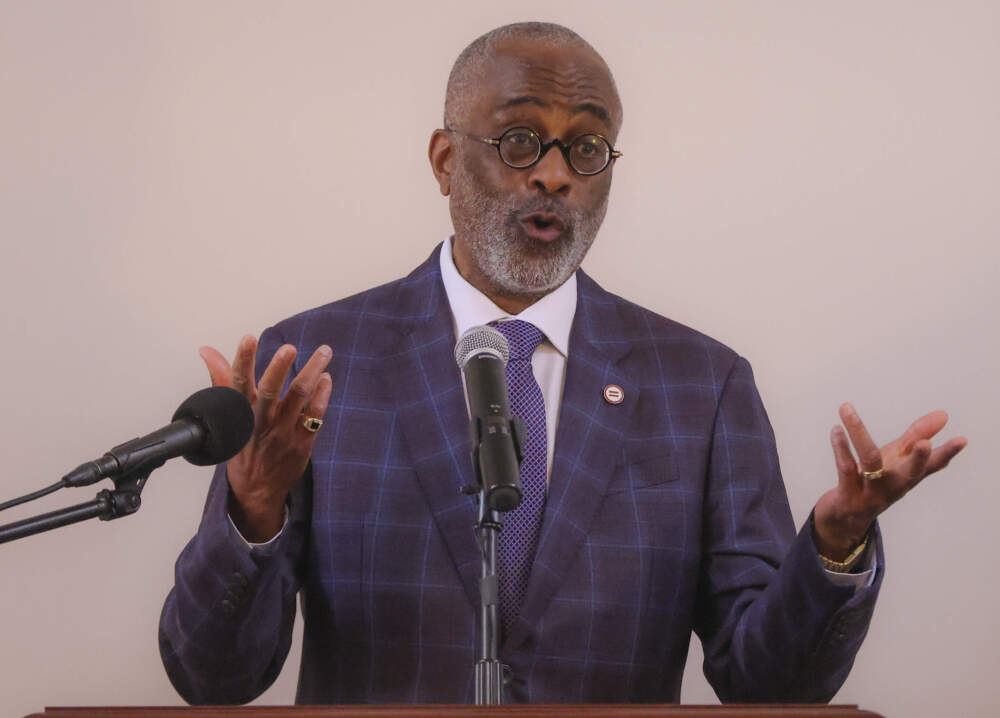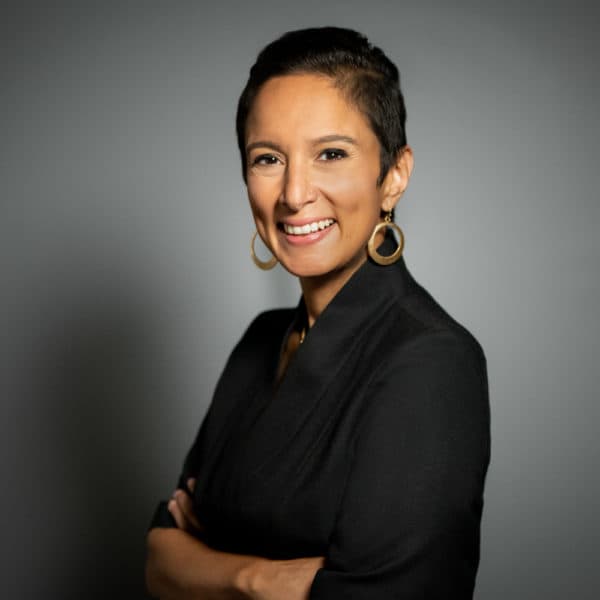Advertisement
Boston reparations task force will not complete work by end-of-year target
Resume
The task force charged with making recommendations to city leaders regarding possible reparations for Black Bostonians will not complete its work by the end of this year as originally planned, its chair said this week.
Attorney Joseph Feaster, who oversees the task force, said the group is still gathering research in what is the first of three phases involved with creating its final report.
"Unfortunately, the timeframes that were set forth in the ordinance were a bit ambitious," Feaster said.
Mayor Michelle Wu appointed the task force last February to consider reparations for the descendants of enslaved people. Boston is one of the largest American cities undergoing such a review, with groups in Los Angeles, San Fransisco, Detroit, St. Louis, Providence and Northampton, Mass. also working to identify their respective cities' ties to slavery and explore reparations.
In Boston, a city ordinance created the group and stated that its members should serve through the end of 2024, unless otherwise determined by the mayor.
The ordinance outlined that the group's first phase of work — to research and document the city's role in slave trade — was to be done by last June. However, the task force did not appoint researchers until last December.
"While some people may be anxious, we've been at this for 400 years," Feaster said. "So I think I can take a year in order for us to do the appropriate research."
In an emailed statement, a city spokesperson said the Wu administration continues to support the task force "to ensure that Boston delivers just and comprehensive recommendations."
"As the Task Force and research partners move forward with their critical work, the City understands that documenting Boston’s role in the trans-Atlantic slave trade and the legacies of slavery requires significant consideration, time and resources," the spokesperson wrote.
At a task force meeting in February, several attendees during public comment asked the task force to hold more community meetings about its work.
A group of activists has also been calling for additional opportunities for public input.
"There is no way that we will be able to achieve a substantive, robust, transparent reparations process with only the engagement of the task force," said the Rev. Kevin Peterson, who leads the People's Reparations Commission, a grassroots group calling for economic reparations. "The task force needs the energy, the creativity from community members who are in the grassroots, who can provide them with insights they’d never be able to achieve.”
Peterson and several of his fellow organizers were involved in efforts that led to Boston's 2022 apology for its role in slavery and the push to rename Faneuil Hall.
Feaster said he did not support the task force deepening its community engagement efforts until its research phase concludes.
"I don't need to have that conversation until such time as I have the benefit of the researchers giving me some guideposts on how we approach the issue," he said. "So to have a conversation presently would be just a nice conversation, but it would not at all be informative to me to have it."
The People's Reparations Commission plans to host its own community hearings in May and October.
The task force's second phase is expected to "assess the City's actions to date to address continued impacts of enslavement," according to the city's ordinance. Its third phase will offer the city recommendations based on the group's findings and an implementation plan.
Originally due this October, Feaster said he now expects to deliver its action plans "sometime in 2025." Wu said she hopes to begin implementing the recommendations by summer 2026, to mark the 250th anniversary of the country's founding.
The organization Embrace Boston also released a report last month that identified five major areas it sees as still impacted today by historic racism that should be addressed by reparations.
Embrace Boston CEO Imari Paris Jeffries said he thinks the city task force has a heavy responsibility and is doing the best it can.
“When we think about reparations for whom, where do we begin?" Jeffries said. "Do we include everyone of the Black diaspora, including people whose ancestors were not enslaved, or do we include people of color who have been impacted by state-sanctioned racism? And so, 'Where do we begin?' I think is a difficult and tough question."
This segment aired on March 8, 2024.

